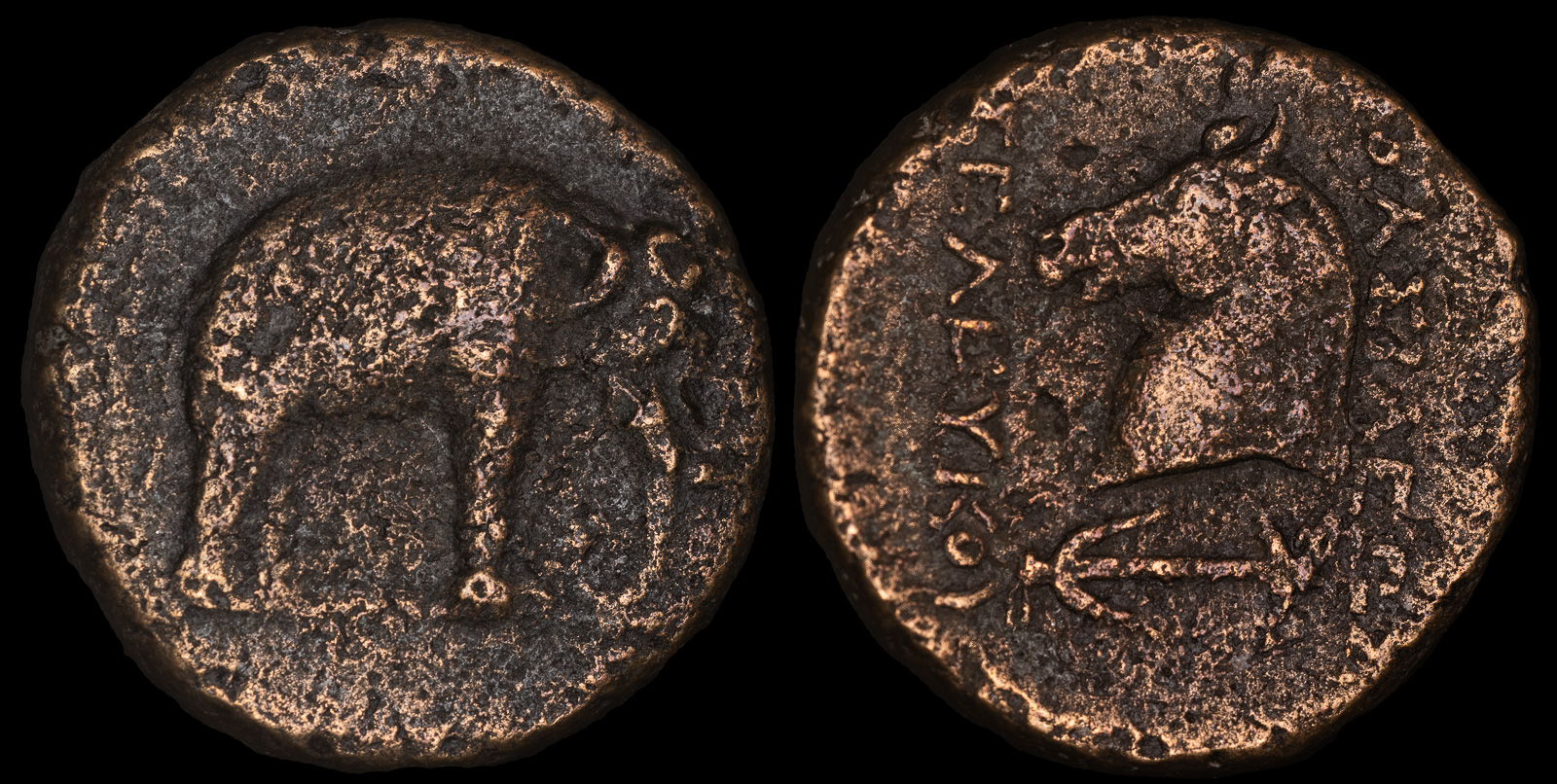
Seleukid Kings of Syria: Seleukos I Nikator
Apameia on the Axios
circa 300-281 BCE
AE 20 mm, 7.69g
Obv: Elephant standing right
Rev. ΒΑΣΙΛΕΩΣ ΣΕΛΕΥΚΟΥ Horned and bridled horse’s head to left; below, anchor to left.
HGC 9, 79. SC 35. WSM 1128
Apama certainly came from an interesting family. Her father Spitamenes was one of the fiercest adversaries of Alexander the Great and led a rebellion of Sogdiana against him. Spitamenes was eventually betrayed by his own soldiers and his head was sent to Alexander.
At the time of the Susa weddings in 324 BCE, Seleukos was an officer in Alexander’s army but was nowhere near as decorated as most of the Diadochi he would eventually face. He was included in the thousands who were forced to marry at the event and his prize was Apama.
After the wedding, most of the Macedonians forsook their brides, but not Seleukos. He stayed happily married to Apama for the rest of his life, although he did take a second wife Stratonike later in her life. It has been debated whether Apama died before he married Stratonike, but most now believe she was still around based on extant monuments to her from that time.
Apama bore Seleukos his heir, Antiochos I Soter, who later married Stratonike (the same one).
Seleukos named three cities in her honor.
Antiochos I Soter is born in Babylon to Seleukos and Apama.
Seleukos I Nikator marries Apama at the Susa weddings.
The Macedonian camp of Pella is fortified by Seleukos I Nikator and renamed Apameia in honor of his wife Apama.